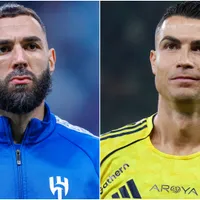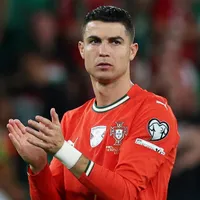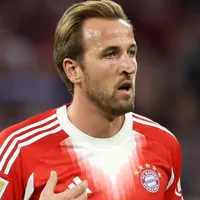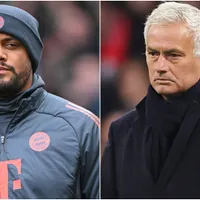Fans of German soccer await as the Bundesliga returns on Friday night. RB Leipzig welcomes Bayern Munich to close a harsh intermission of international failure from Germany.
Germany and Europe have experienced a record mild winter, but there was just enough snow for national captain Manuel Neuer to break his leg while skiing. The Bayern goalkeeper’s accident rivaled only the Reyna family–USMNT soap opera as spice for a slow mid-season off the pitch. New Year’s Eve temperatures in Germany were as high as 68 degrees. Yet, the transfer market hasn’t exactly overheated.
Arguably there are two reserved headlines in German soccer. Bayern, to whom Gladbach’s Jan Sommer is finally moving as deputy for Neuer. And ‘the rest,’ for whom this weekend reconvenes a decade-long balancing act of entertainment value, sporting integrity and prudent second-best finishes.
Who are the teams to watch when the Bundesliga returns?
After the curtain-raiser in Leipzig, the game of the weekend could be at Wolfsburg. In the fall, Robert Kovac’s squad took time to gel, but their pre-World Cup form was only second to Bayern. On Saturday, Wolfsburg host coach of the season-so-far, Christian Streich. His Freiburg fairytale was the highlight of the pre-Christmas Bundesliga.
In second place, Freiburg surprised the league’s bigger spenders. As did promoted Werder Bremen. Werder Bremen, sitting in ninth in the table, visits Köln. Union Berlin, another good story, hosts Hoffenheim. ‘Can they keep it up?’ is the question.
‘Can they step it up?’ is the question for Bayern’s fellow Champions League participants: Eintracht Frankfurt (fourth), RB Leipzig (third) and Borussia Dortmund (sixth). Dortmund especially need to assert themselves. Each of these three clubs assumes underdog status in the round of 16 against Napoli, Man City and Chelsea, respectively. Bayern revive the 2020 final match up against PSG on February 14th, perhaps underdogs on their own accord.
Also needing elevation are Bayer Leverkusen (twelfth) under Xabi Alonso in his first senior managerial role. Having fluffed the Champions League group stage and won only three Bundesliga games in the first three months of a disastrous campaign, Alonso joined Leverkusen in early October. He waited a month for a victory but eased nerves with three in a row before the winter break.
Leverkusen’s poor form (plus long-term injury to Florian Wirtz) means their latest batch of Premier League-linked talent has flown under the radar this season. Those talented players include Wirtz, Piero Hincapié, Moussa Diaby and a rejuvenated Callum Hudson-Odoi.
Alonso’s measurement of success may be by which clubs come bidding for his young talent.
Purchasing power and exorbitant privilege
Transfer norms signify the Bundesliga’s place in world soccer’s hierarchy. Kevin Schade and Georginio Rutter are its latest young exports. Presuming his loan is made permanent, Schade gives up likely European football next season to play mid-table football in England. Rutter cost his Premier League club over $30 million and could be fighting relegation for Jesse Marsch within months as the club’s record signing.
The Bundesliga’s inferior purchasing power hits public imagination hardest with Borussia Dortmund, everyone’s favorite underachievers. Dortmund are resigned to losing Jude Bellingham in the summer. And although sporting director Sebastian Kehl issued a contract ‘ultimatum’ to Youssoufa Moukoko, negotiating power lies with the 18-year-old whose deal expires in June.
Of course, one club needn’t submit to losing its best players to richer climates: Bayern Munich. There is an exorbitant privilege that comes with being number one for ten years. Bayern have the expenses and pulling power to make viable succession plans for key positions. And they aren’t vulnerable to the Premier League cherry picking assets at will.
These assumptions gave Manuel Neuer’s hospitalization added value in a slow winter news cycle. For once, the rest of the league has enjoyed the sight of Bayern scrambling against time to fill a key position.
Neuer is 36, and though it’s impossible to predict the quality of his recovery, he expects to return in the summer and isn’t yet close to retirement. In the end, the stars seem to have aligned just in time.
Borussia Mönchengladbach lined up Montpellier’s Jonas Omlin. This allowed Sommer – ‘too good for Gladbach’ for some time now – to move on, knowing that in six months, he’ll be the best backup keeper in world soccer.
The transfer window remains open until the end of January so there is time for a few delayed Christmas presents yet. Until then we’ll enjoy the weather, forget the World Cup, and have a happy Bundesliga new year.
PHOTO: IMAGO / Motivio















